Date/Time
Date(s) - 03/02/2020 - 03/04/2020
9:00 am - 7:00 pm
Location
St. Mark's Catholic Church - Healy Hall
Categories
English Lenten Parish Mission March 2,3, & 4 (Mon.-Wed.) at 9am and 7pm
with Fr. Eduardo Samaniego
The Following is a Reflection written by Fr. Educardo Samaniego.
My Passion for Justice
When we die, a stone will be put on our tomb. Below our name will be two dates: Our date of birth and our date of death. In between is a dash, which stands for our life. It represents all the time that we lived on this earth.
And now only those who love us know its worth.
Material things do not matter: the cars…the house…the cash.
What matters? How we lived and loved between the two dates.
(Paraphrased from: “The Dash”, by Linda Ellis, Simple Truths, 2005, pg. 38)
Christ’s mission was to do the will of the Father and complete his work, to show how much we’re loved and forgiven, by sending Jesus to live, love, and die. Our mission is to do the will of the one who sends us, Jesus, and to complete his work. Christ’s whole dash was a dash of love. For those of us who aren’t Christian, we all have she-roes and heroes whose dash we have admired and seek to emulate. Since cooks use the term “dash,” as a measure, does our life have a dash of love in it, or not?
Pope Francis wants all of us to be missionaries. As missionaries we’re called to make something of our dash. When our dash takes on the flavor of God, then our dash lays on top of God’s. When our lives give testimony to God’s action in our life, then we are modeling for the people of God how to witness. They want what we can give them: peace of mind, a passion for God’s Word and will, and the courage to act on it. Do our lives witness to God’s thirst for us?
As a Jesuit I am called to promote a faith-that-does-justice. Justice in the Bible does not mean what it does politically here in the USA. Here it means fairness or equality. In the Bible it means “right relationship.” The just question, the question that leads to mercy, is: “Is it right to do what I am about to do?” It is not about doing things right! It is about doing the right thing. Ask a mother of six which child she loves the most, and, if she be wise, she will answer: “The one who needs me the most right now.” So, who needs us the most right now, here on earth?
I’ve been with people who suffer, who are considered “have-nots” in this world. I am into advocating for assistance from the “haves” of this world, using our holy writings to help me advocate for justice, for doing what is right.
To be a socially-just person, church, or nation, we need three components, like the three points on a triangle. One is direct-service, like in Isaiah 58 or Matthew 25, which hold up feeding the hungry, clothing the naked, and visiting the sick or imprisoned. The second is advocacy, is giving a voice to the voiceless and a defense to the defenseless. This is what community organizations like the Interfaith Council and PICO do. And the third point is empowerment, which is clearly explained by the difference between giving a person a fish, or showing them how to fish. One feeds them for the moment, the other feeds them for life.
My passion for justice is directly proportional to the passion God has for justice in our sacred writings. How can we claim to be Jew, a Catholic, a Muslim, a Hindu, a Buddhist or a member of other religious traditions, and not be concerned for the welfare of our fellow humans? Our writings are linked inextricably to justice and its practice.
Fr. Eduardo is the author of If You Preach It, They Will Come
If you Preach it They Will Come



